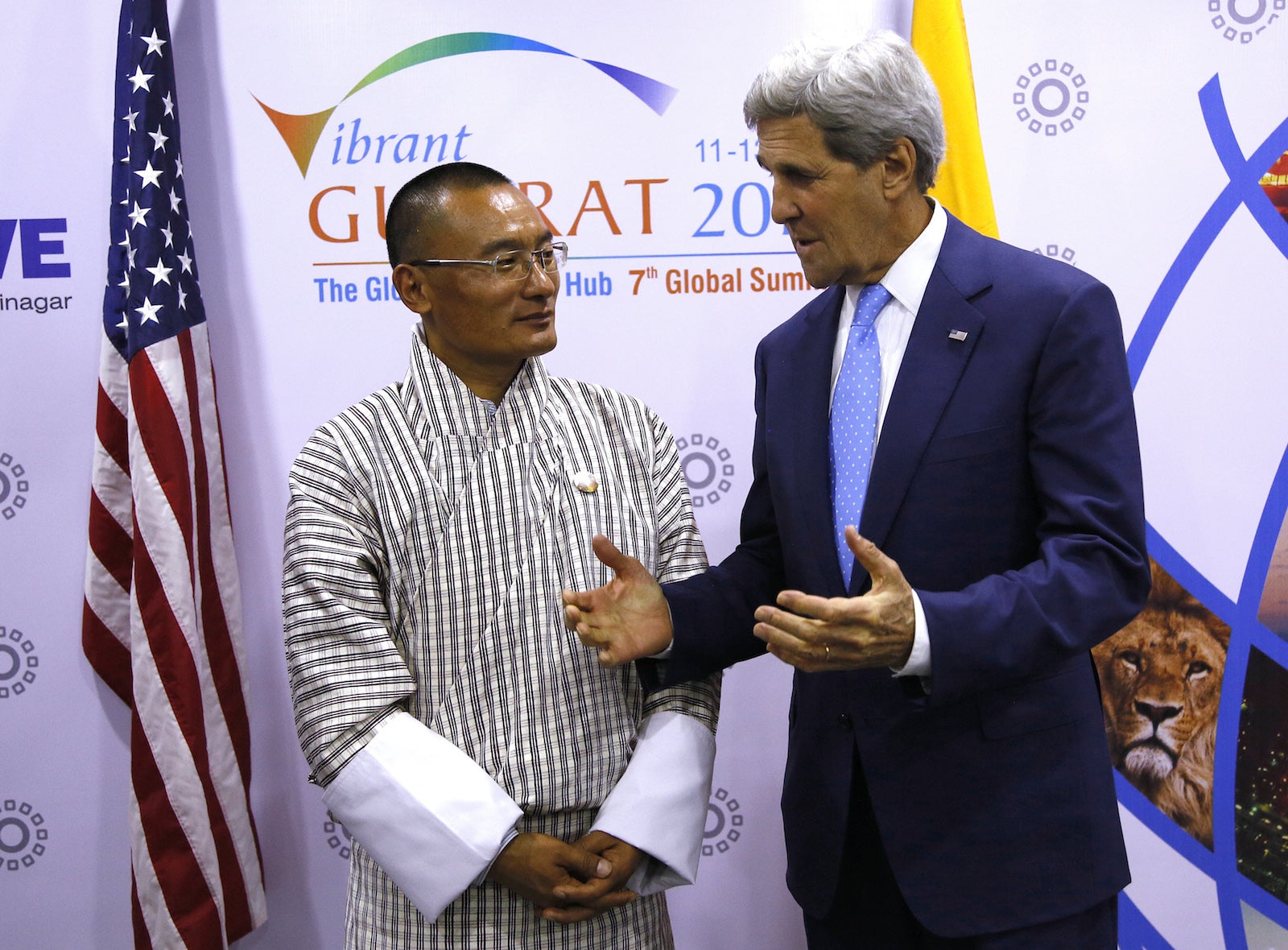Vibrant Gujarat’s showstopper wasn’t Modi, Ambani or Kerry
GANDHINAGAR—On a stage bursting with chief executives of some of the world’s largest companies and politicians who hold sway over billions, the biggest applause came for the leader of a small Himalayan country wedged between India and China.


GANDHINAGAR—On a stage bursting with chief executives of some of the world’s largest companies and politicians who hold sway over billions, the biggest applause came for the leader of a small Himalayan country wedged between India and China.
For most of the three hours of Vibrant Gujarat’s inaugural session on Sunday, Tshering Tobgay, Bhutan’s prime minister, sat impassively on the front row of the head table.
But when it was his turn to speak, he adjusted his traditional gho robe, and launched earnestly into a speech that jolted a drowsy Mahatma Mandir auditorium into alertness.
There was little of the overwhelming praise and optimism about Modi and India’s economy that the dozen or so other speakers were obsessed with.
Instead, a confident Tobgay kept it personal—and delivered a near-perfect business pitch that left an impression. Most other speakers, it seemed, had forgotten that this was, after all, a business summit.
His attendance at Vibrant Gujarat, Tobgay explained, was an “economic pilgrimage” that would be followed by a “spiritual pilgrimage.”
Early on, he broke into near-fluent Hindi, and instantly gained the audience’s attention. Then, he went on to hard-sell Bhutan.
“All our children enjoy free education,” he said, to loud applause, “And not just primary education, but free secondary education.”
“And for those who work hard, free college education.” The applause only got louder.
In a country where the environment lobby remains angered by the government’s move to push industry, Tobgay played up Bhutan’s green growth strategy.
“We have achieved economic growth but without destroying our pristine environment,” he said. “And we have promised to be carbon-neutral for all time to come.”
Loud applause followed.
Again breaking into Hindi, he explain the Himalayan nation’s now famous theory of gross national happiness, which eschews faster economic growth for a more balanced society.
“Gross national happiness,” he said haltingly, “is more important than gross domestic product.”
Tobgay’s final flourish was to acknowledge India’s looming presence over Bhutan’s economy.
“We have a work force, clean energy, economic policies that are friendly, we have peace and political stability,” he said, “and most importantly, we have free and complete access to India’s huge market.”